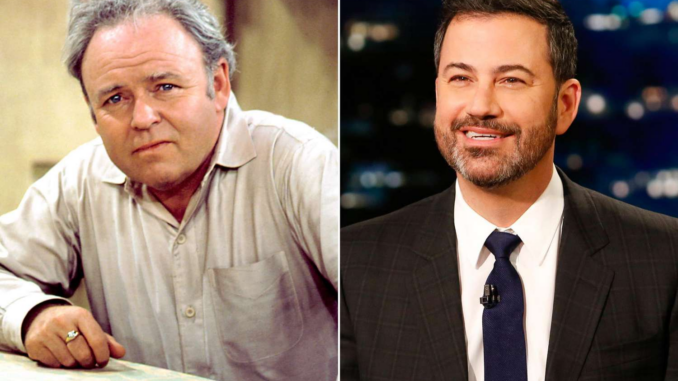
When it comes to television history, few shows have had as profound an impact as ‘All In The Family.’ Premiering in 1971, this sitcom broke barriers and tackled social issues head-on, often sparking heated debates among viewers. One particular moment in the series stands out as a turning point, shaking audiences to their core and igniting conversations that continue to resonate today. In this article, we’ll dive deep into that controversial moment, exploring its context, impact, and the legacy it left behind.
1. The Context of ‘All In The Family’
A Show Ahead of Its Time
‘All In The Family’ was created by Norman Lear and was revolutionary for its time. It brought issues like racism, sexism, and class struggles into the living rooms of America, often through the lens of humor. The show’s protagonist, Archie Bunker, portrayed by Carroll O’Connor, was a working-class man with outdated views, making him both relatable and infuriating.
A Reflection of Society
The series didn’t shy away from controversial topics. Instead, it used them as a springboard for discussion, reflecting the societal tensions of the 1970s. This approach made the show a cultural phenomenon, but it also meant that some moments would inevitably stir controversy.
2. The Controversial Moment: A Scene to Remember
The Episode That Shook Audiences
The moment that truly shook audiences occurred in the episode titled “Sammy’s Visit.” In this episode, Sammy Davis Jr., a prominent African American entertainer, visits the Bunker household. The interactions between Archie and Sammy highlight the racial tensions of the time, leading to a memorable and controversial exchange.
The Impact of Sammy Davis Jr.
Having a major celebrity like Sammy Davis Jr. on the show was groundbreaking. His presence challenged the racial stereotypes that Archie often embodied. However, the way Archie interacted with him raised eyebrows and sparked discussions about racism and acceptance.
3. The Reaction from Audiences
Divided Opinions
When the episode aired, reactions were mixed. Some viewers praised the show for addressing racism directly, while others were outraged by Archie’s comments and behavior. This division highlighted the ongoing struggle with race relations in America.
A Cultural Conversation Starter
The episode became a cultural conversation starter, prompting discussions about race, prejudice, and the role of humor in addressing serious issues. It forced viewers to confront their own biases and the societal norms of the time.
4. The Legacy of ‘All In The Family’
Changing the Landscape of Television
The controversy surrounding this episode and others like it helped to change the landscape of television. ‘All In The Family’ paved the way for future shows to tackle difficult subjects, proving that comedy could be a powerful tool for social commentary.
Influencing Future Generations
The show’s willingness to confront uncomfortable truths influenced countless sitcoms that followed. Programs like ‘The Fresh Prince of Bel-Air’ and ‘Modern Family’ owe a debt to the groundbreaking work done by ‘All In The Family.’
5. The Role of Humor in Addressing Controversy
Laughter as a Tool for Change
One of the most significant aspects of ‘All In The Family’ was its use of humor to address serious issues. By presenting controversial topics in a comedic light, the show made it easier for audiences to engage with difficult conversations.
The Fine Line Between Humor and Offense
However, this approach also raised questions about the fine line between humor and offense. What one person finds funny, another may find deeply offensive. This ongoing debate continues to shape the way television addresses sensitive topics.
6. The Cultural Impact of the Episode
A Moment in History
The episode featuring Sammy Davis Jr. is now considered a moment in television history. It exemplifies how ‘All In The Family’ used its platform to challenge societal norms and provoke thought.
A Reflection of Changing Times
As America grappled with issues of race and identity, this episode served as a reflection of changing times. It highlighted the need for dialogue and understanding, making
